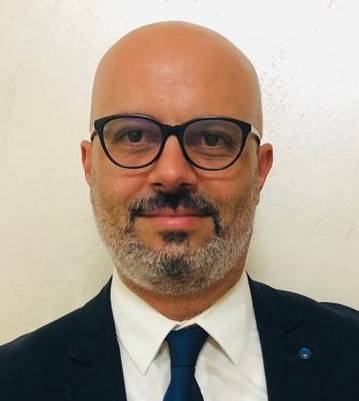The annual commemoration of the Beirut blast has now become a symbol of something else: an outpouring of grief and emotion, accompanied by a staggering lack of action in identifying those responsible.
Though the memory of the blast remains vivid, the pursuit of justice seems to have been forgotten. Like many other crimes that have plagued the region, the Beirut blast remains shrouded in mystery and confusion. As the years have passed, no tangible information about the perpetrators has come to light. This is but one in a series of explosions and criminal acts that have yet to be investigated or resolved, leaving a trail of unanswered questions.
For those affected by the blast, the anniversary is not only a time to reflect on loss and sorrow but also an opportunity to raise voices demanding accountability and justice. The emotional sympathy that ignites each year with the commemoration seems to be far removed from the national responsibility of remembering the ongoing, day-to-day responsibility to investigate the crime. It raises the question: Why should 4 August be remembered on this day alone, when the quest for justice should be an ever-present endeavour?
The lack of progress in the investigation stands in stark contrast to the pledges made by national leaders and the international community. The palpable sense of frustration and disillusionment is exacerbated by the fact that many citizens feel betrayed by a system that has repeatedly failed to deliver on its promises.
Amidst the broader context of unresolved crimes, the 4 August Beirut blast finds its place in a disconcerting series of unsolved assassinations and mysterious killings that have baffled the nation. Included in this list are the enigmatic deaths of prominent figures such as Kamal Jumblatt, Sheikh Hassan Khaled, Rene Moawad, and Rafic Hariri, along with numerous post-February 14, 2005, academic and nationalistic voices that were violently silenced. The persistence of these unresolved cases continues to cast a shadow over the nation’s political landscape, fueling skepticism and mistrust. As the anniversaries of these tragic events come and go, the echoes of injustice reverberate through the corridors of power, challenging the nation’s resolve to face its history openly and honestly. The unsettling pattern of inaction serves as a sobering reminder that the quest for truth and accountability remains an unfulfilled promise, not only in the case of the Beirut blast but also in the broader tapestry of Lebanon’s troubled past.
Beirut port blast: three years on, victims still await accountability
The collective memory of the Lebanese citizens appears to have been conditioned to two distinct yet intertwined reactions to tragedy: a cold, detached response to assassinations and collective crimes, followed by an eventual fading of memory and emotion. This cyclical pattern of initial emotional vibrancy, giving way to forgetfulness, may inadvertently fuel the very acts it seeks to condemn. Such a mentality, characterised by a lack of sustained pursuit of justice, appears to set the stage for future crimes, conducted in an environment where passion and outrage gradually yield to indifference and neglect. Forgetfulness has, in many ways, become a collective mindset in Lebanon, where citizens move past each crime, losing the essential connection to their shared history. This troubling phenomenon may indeed be at the root of past, present and future difficulties in dealing with collective crimes. The perpetual cycle of remembering only to forget serves as both a reflection of a broader societal issue and a warning for the future. It presents a complex challenge that must be addressed if the nation is to break free from a history marred by unresolved suffering and injustice.
The commemoration of the Beirut blast serves not only as a poignant reminder of a dark moment in the nation’s history, but also as a reflection of a wider problem of inaction and unfulfilled promises. The anniversary of 4 August symbolises not just the pain of the past but a challenge for the present and the future, calling for genuine commitment to uncover the truth and ensuring that such a tragedy never occurs again.
The views expressed in this article belong to the author and do not necessarily reflect the editorial policy of Middle East Monitor.

![a view of a 25-metre-tall steel sculpture dubbed "The Gesture" by Lebanese artist Nadim Karam, made from debris resulting from the aftermath of the blast at the port of Lebanon's capital Beirut that took place on August 4, 2020, in Beirut, Lebanon on August 02, 2021. [Houssam Shbaro - Anadolu Agency]](https://i0.wp.com/www.middleeastmonitor.com/wp-content/uploads/2021/08/20210802_2_49446752_67567491.jpg?fit=920%2C613&ssl=1)







